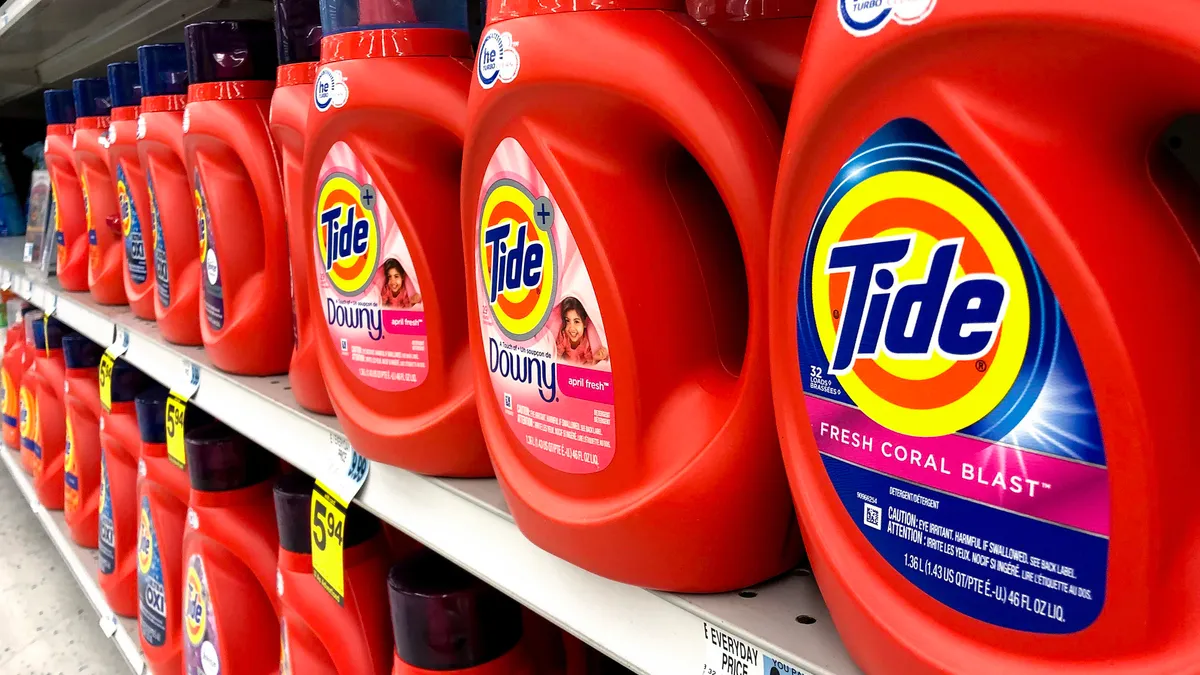Dive Brief:
- Procter & Gamble will raise prices of laundry and personal health care products as the CPG looks to offset a substantial rise in the cost of chemicals and other raw materials, CFO Andre Schulten said on its Jan. 19 earnings call.
- Raw material costs are up 44% across commodity classes, with prices of chemicals increasing the most. Resin and pulp prices have eased from their peak, but "the increases year-over-year continue to be very material," Schulten said.
- P&G, the owner of brands such as Tide and Bounty, expects commodity price inflation to create $2.3 billion in added costs this fiscal year based on current spot prices.
Insight
High commodity prices continues to weigh on CPGs as raw material shortages and transportation delays disrupt supplier operations and push up prices.
Chemicals are up as high as 60% for P&G as the industry reports higher transportation costs, longer lead times and lost production. More than a third of manufacturers in a survey from the American Chemistry Council declared or experienced force majeure in the past year, with 93% of respondents reporting additional costs of at least a $1 million.
Rising disruptions have companies shifting sourcing and finding alternate materials when possible. P&G has relied on back-up suppliers and reformulated products in the case of shortages or when shipping delays prevent materials from making it to their destinations on time.
Chemical prices ignite
But those strategies also bring more cost.
"When we need to shift to alternate materials, when we need to shift to alternate suppliers, or sources of materials geographically, that comes as a premium," Schulten said.
Price increases are set to take effect Feb. 28 for laundry products and mid-April for certain personal healthcare brands.
"The degree and timing of these moves are very specific to the category, brand and sometimes the product form within a brand," Schulten said. "This is not a one-size-fits-all approach."
Higher commodity costs have also pushed Colgate-Palmolive to reformulate products, but only in cases where the company believes prices will remain elevated long-term. For example, the CPG expects tallows and fats — ingredients also used in biodiesel — to remain expensive as the demand for renewable energy increases.
"We think that one is more structural in nature," CFO Stanley Sutula said during a December conference call. "So what do we do about that? We look at innovation, alternate formulas."














